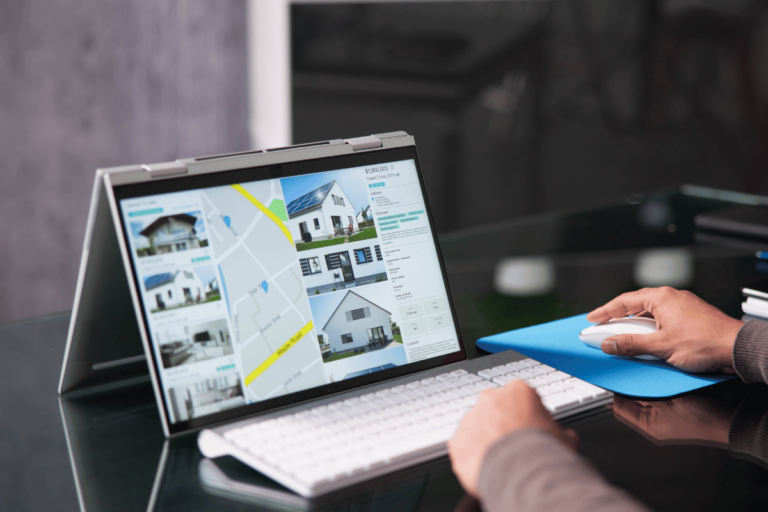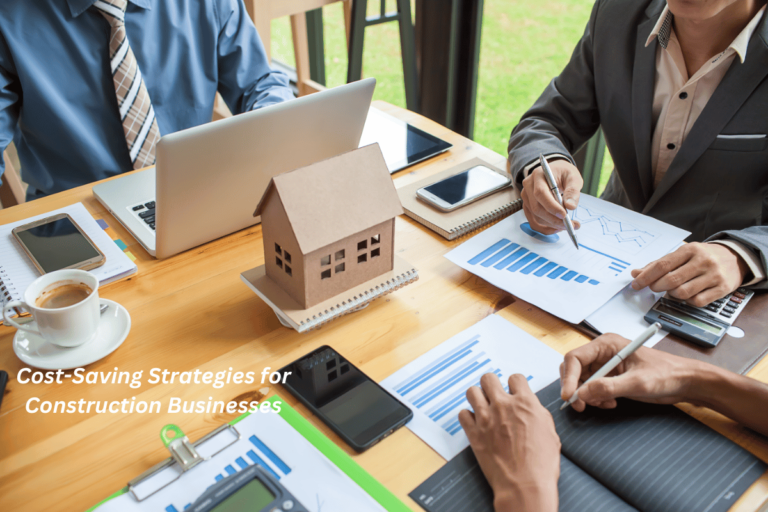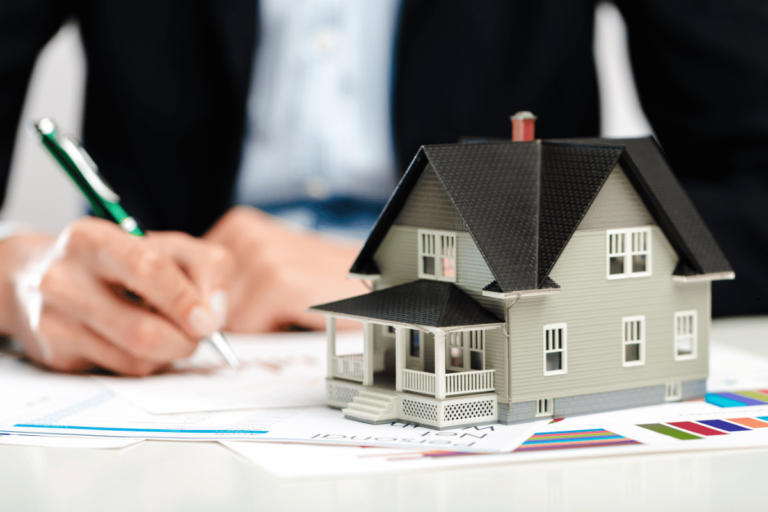Smart Homes: Integrating Technology Into Real Estate
Embrace the evolution of home living with the seamless integration of technology into real estate through smart homes. Discover how these innovative solutions are reshaping the traditional concept of homeownership and creating a more interconnected and efficient environment. Explore the endless possibilities that smart home technology offers in enhancing your daily routines, ensuring security, and streamlining your lifestyle. Find out how these advancements are not just a trend but a fundamental shift in how we interact with our living spaces.
Key Takeaways
- Utilize IoT advancements for seamless connectivity.
- Ensure homes are designed for future tech upgrades.
- Verify compatibility with popular smart home platforms.
- Consider scalability and flexibility for changing needs.
- Invest in systems with upgradable components for longevity.
Benefits of Smart Home Technology
Enhancing convenience and efficiency, smart home technology automates various household tasks, revolutionizing the way you interact with your living spaces. One of the key benefits of smart home technology is the significant cost savings it can offer. By optimizing energy usage through smart thermostats, lighting systems, and appliances, you can lower your utility bills and reduce overall energy consumption. This not only benefits your wallet but also contributes to a more sustainable lifestyle.
Furthermore, smart home technology doesn't just stop at cost savings; it also focuses on lifestyle improvement. With the ability to remotely control your home's security, lighting, and entertainment systems from your smartphone or voice commands, you gain a newfound level of convenience and comfort. Imagine arriving home to a well-lit house with your favorite music playing, all set up automatically based on your preferences.
These lifestyle enhancements ultimately create a more enjoyable and stress-free living environment, tailored to your needs and desires.
Enhancing Home Security
By implementing state-of-the-art security features, you can strengthen your home against potential threats and intrusions, guaranteeing peace of mind for you and your loved ones.
Surveillance cameras play a pivotal role in modern home security systems. These cameras provide real-time monitoring of your property, allowing you to keep an eye on your home even when you're away. With features like motion detection and remote viewing capabilities, surveillance cameras offer enhanced security and peace of mind.
Another innovative security measure is biometric access. This technology uses unique biological traits such as fingerprints or facial recognition to grant access to your home. By implementing biometric access control systems, you can ensure that only authorized individuals can enter your property, enhancing security and eliminating the risk of unauthorized entry.
Integrating surveillance cameras and biometric access into your smart home setup can notably enhance your home security measures. These advanced technologies provide a strong defense against potential threats, giving you the peace of mind that your home and loved ones are well-protected.
Energy Efficiency Solutions
To optimize your home's functionality and reduce energy consumption, exploring energy efficiency solutions can greatly benefit your smart home setup. By incorporating renewable energy sources and adopting sustainable living practices, you can enhance the eco-friendliness of your home while also lowering your utility bills. Here are some innovative energy efficiency solutions to explore:
| Energy Efficiency Solutions | Description | Benefits |
|---|---|---|
| Solar Panels | Capture sunlight and convert it into electricity to power your home. | Reduce reliance on traditional energy sources and lower electricity costs. |
| Smart Thermostats | Regulate temperature based on your schedule and preferences, optimizing energy usage. | Save energy by ensuring your home is only heated or cooled when needed. |
| Energy-Efficient Appliances | Use appliances that consume less energy, promoting sustainability. | Lower energy bills and reduce your carbon footprint. |
| LED Lighting | Energy-efficient lighting option that lasts longer and uses less electricity than traditional bulbs. | Decrease energy consumption and save money on your electricity bill. |
| Insulation Upgrades | Improve insulation to maintain a consistent temperature in your home, reducing the need for heating and cooling. | Enhance comfort, reduce energy waste, and cut down on heating and cooling costs. |
Automation for Convenience
Get ready to streamline your daily routines with time-saving automation features that can make your life easier.
From smart thermostats that adjust to your schedule to voice-activated assistants that manage your tasks, convenience is just a command away.
Not only does automation offer efficiency, but it also enhances security with innovative technology and integrates energy-efficient smart devices for a more sustainable living environment.
Time-Saving Automation Features
Incorporating time-saving automation features into your smart home system can streamline daily tasks and enhance overall convenience. By leveraging automation benefits and efficiency enhancements, you can greatly enhance your quality of life.
Here are some key time-saving solutions and convenience technologies to explore:
- Automated Lighting: Set timers or use motion sensors to control lights, saving you the hassle of manually switching them on and off.
- Smart Thermostats: Adjust your home's temperature remotely or program it to adapt based on your schedule, reducing energy waste and optimizing comfort.
- Automated Irrigation Systems: Save time on lawn maintenance by automating your watering schedule based on weather forecasts and soil moisture levels.
- Smart Appliances: Enjoy the advantages of appliances that can be controlled through your smartphone, helping you manage tasks more efficiently and effectively.
Enhanced Security Through Technology
Enhance your home's security through the seamless integration of technology, providing convenience and peace of mind.
Enhanced surveillance systems offer real-time monitoring of your property, allowing you to keep a watchful eye even when you're away. Smart cameras with motion detection and night vision capabilities can alert you instantly to any unusual activity, giving you the ability to respond promptly to potential security threats.
Smart locks provide an additional layer of security by allowing you to control access to your home remotely. With features like keyless entry via smartphone apps or unique access codes, you can easily grant or revoke access to family members, guests, or service providers. In case of a lost key or a security breach, these smart locks offer the flexibility to change passwords or lock settings instantly.
Energy-Efficient Smart Devices
Integrating energy-efficient smart devices into your home's automation system can greatly enhance convenience and reduce environmental impact. Embracing this aspect of modern technology not only makes your life easier but also contributes to green living and sustainability.
Here's why you should consider incorporating energy-efficient smart devices:
- Cost Savings: Energy-efficient smart devices can help you save on utility bills by optimizing energy usage throughout your home.
- Sustainability: By reducing your energy consumption, you can lower your carbon footprint and contribute to a more sustainable environment.
- Green Living: Energy-efficient smart devices align with a green lifestyle, promoting eco-friendly practices within your household.
- Modern Technology: These devices showcase the latest advancements in smart home technology, offering you a glimpse into the future of home automation.
Real Estate Market Impact
As you explore the impact of smart homes on the real estate market, consider the increasing adoption of technology shaping buyer preferences and expectations.
This shift towards tech-enhanced properties not only boosts home values but also influences the overall market landscape.
Understanding these dynamics can help you navigate the evolving real estate market with a focus on innovation and modernization.
Market Technology Adoption
The adoption of market technology within the real estate industry is reshaping the way properties are bought, sold, and managed. As technology adoption rates continue to rise, market trends and growth opportunities are becoming more apparent.
Here are some key points to take into account:
- Enhanced Efficiency: Technology streamlines processes, making transactions quicker and more efficient.
- Improved Communication: Real-time updates and notifications facilitate smoother interactions between buyers, sellers, and agents.
- Data-Driven Insights: Advanced analytics provide valuable information for decision-making and market predictions.
- Increased Accessibility: Online platforms and mobile apps make property listings and information more accessible to a wider audience.
Home Value Increase
With the integration of technology into real estate, home values are experiencing a significant increase, reshaping the dynamics of the market. Smart home features like energy-efficient appliances, automated systems, and security enhancements are influencing home appraisals positively. These technological upgrades not only enhance the overall appeal of a property but also contribute to its functionality and efficiency, ultimately driving up its market value.
Investing in smart home technology can lead to a higher investment return for homeowners. Properties equipped with the latest tech gadgets and systems tend to attract more buyers who are willing to pay a premium for the convenience and lifestyle benefits these features offer.
As a homeowner, incorporating smart technology into your property can't only increase its market value but also provide you with a competitive edge in the real estate market. By staying ahead of the curve and embracing these technological advancements, you position yourself for a potentially lucrative investment return when it comes time to sell your home.
Buyer Expectations Shift
Buyers' expectations in the real estate market are undergoing a notable shift as the demand for smart home technology continues to shape preferences and influence purchasing decisions. This shift is a result of changing demands and technology advancements that have revolutionized the way buyers perceive and interact with properties. As a prospective buyer, it's pivotal to understand these evolving trends to make informed decisions in the real estate market.
- Personalization: Buyers now expect homes to be customizable with smart features that cater to their specific needs and lifestyle.
- Energy Efficiency: There's a growing preference for energy-efficient smart home devices that not only reduce utility costs but also have a positive environmental impact.
- Security: Enhanced security systems integrated into smart homes are becoming a top priority for buyers seeking peace of mind and protection for their families.
- Convenience: The convenience offered by smart home technology, such as automated lighting, thermostats, and entertainment systems, is increasingly influencing buyer preferences and purchase decisions.
Increasing Property Value
Enhancing your home with smart technology can greatly boost its overall market appeal and value. Property appreciation is a key benefit of integrating technology into your real estate. Smart features such as automated lighting, smart thermostats, and security systems not only enhance the functionality of your home but also increase its investment potential.
By incorporating technology into your property, you aren't only making your living experience more convenient and efficient but also attracting tech-savvy buyers who are willing to pay a premium for these modern amenities. The convenience and energy-saving capabilities of smart devices can notably increase the perceived value of your home in the eyes of potential buyers.
Investing in smart technology is a strategic move to stay competitive in the real estate market and secure a higher selling price for your property. As technology continues to advance, homes equipped with smart features are becoming increasingly desirable, making them a wise investment for long-term property value appreciation.
Future Trends and Innovations
Looking ahead, the integration of artificial intelligence and voice control systems in smart homes is set to revolutionize the real estate industry. As technology continues to advance, future trends and innovations are shaping the way we live in our homes.
Here are some key developments to look out for:
- IoT Advancements: The Internet of Things (IoT) is driving connectivity in smart homes to new heights, allowing for seamless integration of devices and systems for greater efficiency and convenience.
- Futuristic Designs: Homes of the future are being designed with sleek aesthetics and innovative functionalities that cater to the needs of modern homeowners, blending technology seamlessly into living spaces.
- AI Integration: Artificial intelligence is playing a significant role in smart homes, enabling personalized experiences, predictive maintenance, and energy optimization for sustainable living.
- Sustainable Living: With a focus on environmental conservation, smart homes are incorporating eco-friendly features and energy-efficient solutions to promote sustainable living practices.
These trends aren't only shaping the future of real estate but also enhancing the way we interact with our living spaces.
Smart Home Integration Challenges
Exploring the world of smart home integration presents a variety of challenges that both homeowners and developers must address. Integration complexity and compatibility issues are at the forefront of these challenges, impacting the overall user experience and functionality of smart home systems. Ensuring that different devices and platforms work seamlessly together can be a challenging task, requiring careful planning and execution. Additionally, installation challenges may arise due to varying building structures, wiring systems, and technical requirements.
To provide a clearer picture, let's dive into the key challenges faced in smart home integration:
| Challenges | Description | Solutions |
|---|---|---|
| Integration Complexity | Connecting multiple devices and systems to work harmoniously can be intricate. | Utilizing central smart hubs |
| User Experience | Ensuring a seamless and intuitive user interface for controlling smart home functions. | Implementing user-friendly apps |
| Compatibility Issues | Dealing with devices from different manufacturers that may not be fully compatible. | Researching compatible brands |
| Installation Challenges | Adapting smart technology to various home infrastructures and layouts can be complex. | Seeking professional installation services |
| Technical Support | Providing adequate assistance and troubleshooting for smart home systems. | Accessing reliable customer support |
Navigating these challenges is essential for successful smart home integration, enhancing convenience and efficiency within modern homes.
Recommendations for Home Buyers
When considering the purchase of a smart home, it's crucial for buyers to conduct thorough research on the compatibility and integration capabilities of the existing technology within the property. Smart homes offer a range of benefits, from increased security to energy efficiency, but to make the most of these features, here are some key recommendations for home buyers:
- Evaluate Home Customization Options: Look for smart homes that offer flexibility in customization, allowing you to tailor the technology to your specific needs and preferences.
- Assess Lifestyle Upgrades: Consider how the smart home features can enhance your daily life, whether it's through automated lighting, climate control, or entertainment systems.
- Verify Integration with Existing Devices: Confirm that the smart devices in the home can seamlessly integrate with your current gadgets and technology ecosystem.
- Future-Proofing: Look for smart homes that are equipped to adapt to future technological advancements, guaranteeing that your investment remains relevant in the long term.
Conclusion
To sum up, smart homes offer a range of benefits, from enhanced security and energy efficiency to increased property value. By integrating technology into real estate, homeowners can enjoy convenience, savings, and peace of mind.
As the demand for smart features continues to grow, the real estate market is being shaped by these innovations. Embracing automation, energy solutions, and connectivity isn't just a trend, but a fundamental shift towards a more efficient and sustainable living experience.







